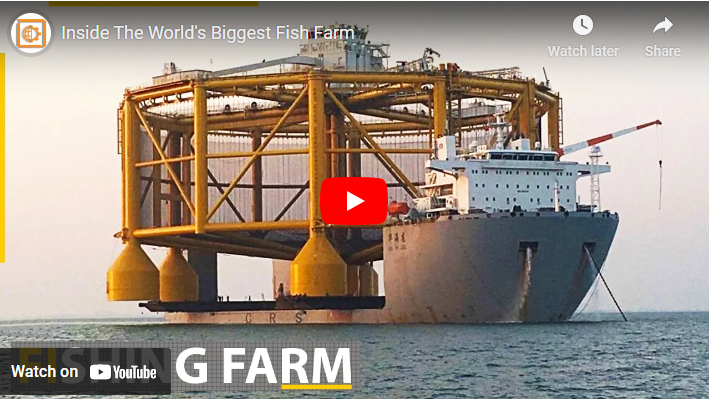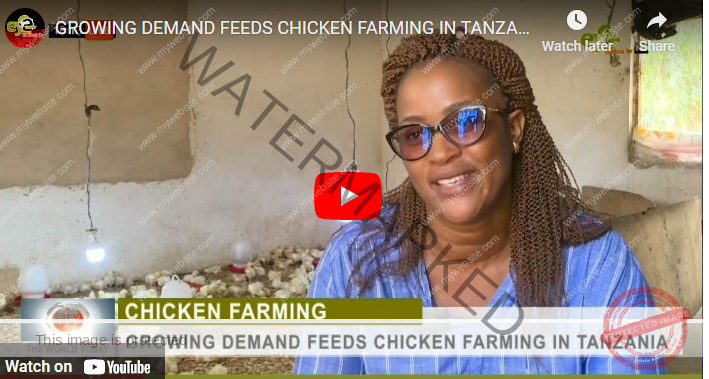As the demand for seafood continues to rise globally, the UK has seen significant growth in the fish farming industry. Fish farming, also known as aquaculture, involves the breeding and rearing of fish in tanks, ponds, or pens for commercial purposes. In this article, we will take a look at the top 12 biggest fish farms in the UK.
Top 12 Biggest Fish Farms in UK
The UK’s fish farming industry has grown significantly in recent years and has become an essential part of the country’s food industry. With its mild climate and vast coastline, the UK is an ideal location for fish farming.
Read Also: Top 12 Biggest Fish Farms in the World
Fish farms produce various types of fish, including salmon, trout, and carp, among others. In this article, we will explore the top 12 biggest fish farms in the UK and what factors contribute to the growth of the fish farming industry in the country.
Some of the biggest fish farms in United Kingdom today includes Mowi Scotland, Scottish Sea Farms, Loch Duart Ltd., Marine Harvest, and Wester Ross Salmon.
Read Also: 12 Biggest Farming Countries in Europe
Let’s take a look at the top 12 biggest fish farms in the UK:
1. Mowi Scotland
Mowi Scotland is one of the UK’s biggest fish farming companies and produces over 60,000 tonnes of salmon each year. The company operates across Scotland and has farms in the Western Isles, Shetland, and the mainland.
Read Also: 12 Biggest Farming Countries in the World
2. Loch Duart Ltd.
Loch Duart Ltd. produces premium Scottish salmon and operates farms in Sutherland and the Outer Hebrides. The company is committed to sustainable aquaculture practices and focuses on providing high-quality salmon to its customers.
Read Also: 12 Biggest Fish Farming Companies in The World
3. Scottish Sea Farms
Scottish Sea Farms is a leading salmon farming company in Scotland. They have a network of farms along the country’s coastline, producing thousands of tonnes of salmon annually. The company places a strong emphasis on fish welfare, sustainability, and product quality.
Read Also: Richest Pig Farmer In The World
4. Marine Harvest
Marine Harvest is a global aquaculture company with a significant presence in the UK. They operate several fish farms in Scotland, producing a wide range of fish species, including salmon, trout, and halibut. The company is known for its sustainable practices and commitment to responsible aquaculture.
Read Also: Richest Pig Farmer In Uganda
5. Wester Ross Salmon
Wester Ross Salmon is a renowned fish farming company located in the Scottish Highlands. They specialize in producing premium quality, organically farmed salmon. The company takes pride in its traditional, low-intensity farming methods that prioritize fish welfare and environmental sustainability.
Read Also: Richest Pig Farmer In Zambia
6. The Scottish Salmon Company
The Scottish Salmon Company is one of the largest producers of Scottish salmon. They have farms situated across the west coast of Scotland, where they rear salmon in pristine marine environments. The company focuses on delivering superior quality salmon while minimizing their environmental impact.
Read Also: Richest Poultry Farmer In Ghana
7. Dawnfresh Seafoods
Dawnfresh Seafoods is a prominent fish farming and processing company in the UK. They have fish farms located in various parts of Scotland, producing trout and other freshwater species. With a strong commitment to sustainability and innovation, Dawnfresh Seafoods plays a vital role in the UK’s aquaculture industry.
Read Also: Top 5 Richest Poultry Farmer In Kenya
8. Cooke Aquaculture Scotland
Cooke Aquaculture Scotland is part of the Cooke family of companies and operates several fish farms in Scotland. They produce Atlantic salmon using environmentally responsible practices. The company prioritizes the health and well-being of their fish, ensuring the production of high-quality seafood.
Read Also: Top 5 Richest Poultry Farmer In Nigeria
9. Grieg Seafood Hjaltland UK Ltd.
Grieg Seafood Hjaltland UK Ltd. is a subsidiary of Grieg Seafood, a global leader in salmon farming. They have fish farms located in Shetland, producing premium-quality salmon. The company focuses on sustainable farming methods, responsible resource management, and maintaining strong relationships with local communities.
Read Also: Richest Poultry Farmer In South Africa
10. Scottish Seafarms Ltd.
Scottish Seafarms Ltd. is a leading salmon farming company with farms across Scotland. They have a strong commitment to sustainable and responsible aquaculture practices. The company prides itself on producing high-quality salmon while minimizing their environmental footprint.
Read Also: Richest Poultry Farmer In The World
11. Hjaltland Seafarms Ltd.
Hjaltland Seafarms Ltd. is a well-established fish farming company based in the Shetland Islands. They specialize in producing high-quality Atlantic salmon, which is farmed in the pristine waters surrounding the islands. Hjaltland Seafarms is dedicated to sustainable practices and ensuring the welfare of their fish.
Read Also: Richest Sikh Farmers In California
12. Argyl & Bute Council
Argyl & Bute Council is a local authority in Scotland that operates fish farms within its jurisdiction. They play a crucial role in promoting aquaculture in the region, supporting local fish farmers, and contributing to the growth of the industry.
Read Also: Top Richest Farmers In Argentina
Factors Affecting the Growth of Fish Farming in the UK
The growth of fish farming in the UK is influenced by several factors, including:
Favorable environmental conditions:
The UK’s temperate climate and extensive coastline provide suitable conditions for fish farming, enabling the industry to thrive.
Read Also: Top Richest Farmers In Botswana
Technological advancements:
The development of innovative technologies and farming techniques has enhanced the efficiency and productivity of fish farms.
Read Also: Top 10 Richest Cattle Farmers in the World
Government support:
The UK government has implemented policies and initiatives to support the growth of the aquaculture industry, providing funding, regulations, and research support.
Read Also: Top 12 Richest Fish Farmers in the World
Consumer demand:
The increasing demand for sustainable seafood and the preference for locally sourced products have contributed to the growth of the fish farming industry in the UK. Consumers are becoming more conscious of the environmental impact of wild fish harvesting and are seeking out responsibly farmed seafood options.
Read Also: Top 10 Richest Farmers in Iowa
Job creation:
Fish farming provides employment opportunities in rural areas, contributing to local economies and reducing unemployment rates.
Read Also: Top 10 Biggest Fish Farms in Kenya
Export potential:
The UK’s fish farming industry has significant export potential, allowing for the growth of international trade and economic benefits.
Read Also: Top 10 Richest Cattle Farmers in the World
Research and development:
Ongoing research and development in the field of aquaculture have led to advancements in fish health management, feed formulation, and breeding techniques, further supporting the growth of the industry.
Read Also: Top 12 Biggest Fish Farms in USA
Advantages of Fish Farming
Fish farming has several advantages, including:
Increased food production:
Fish farming increases the production of fish, which can help meet the growing demand for seafood.
Read Also: Top 12 Biggest Fish Farms in America
Reduced pressure on wild fish stocks:
Fish farming reduces the need for wild fish harvesting, which helps preserve wild fish stocks.
Controlled environment:
Fish are raised in controlled environments, which provide optimal conditions for growth and reproduction.
Read Also: Top 12 Biggest Fish Farms in Singapore
Lower carbon footprint:
Fish farming has a lower carbon footprint than wild fish harvesting, which helps reduce greenhouse gas emissions.
Disadvantages of Fish Farming
Fish farming also has some disadvantages, including:
Disease outbreaks:
Fish farms can be susceptible to disease outbreaks, which can lead to high mortality rates.
Read Also: Top 12 Biggest Fish Farm in Africa
Environmental impact:
Fish farming can have a negative environmental impact if not managed properly. Waste from fish farms can pollute waterways and harm wild fish populations.
Read Also: Top 10 Biggest Fish Farm Projects in Ghana
High costs:
Fish farming can be expensive to set up and maintain.
Dependence on fish feed:
Fish farms rely on fish feed, which can be costly and may contribute to overfishing of wild fish populations.
Read Also: Top 10 Biggest Fish Farm Projects in Nigeria
Are fish farms environmentally friendly?
Fish farms strive to implement sustainable practices to minimize their environmental impact. However, challenges such as waste management, disease prevention, and potential impacts on wild fish populations require ongoing research and innovation to further improve the industry’s environmental footprint.
Is farmed fish safe to consume?
Yes, farmed fish undergoes rigorous quality control measures to ensure its safety for consumption. Fish farms adhere to strict regulations regarding water quality, feed, and disease management to produce safe and healthy seafood products.
How does fish farming contribute to food security?
Fish farming plays a crucial role in enhancing food security by increasing the availability of seafood and reducing dependence on wild fish stocks. It provides a consistent and reliable supply of fish, helping to meet the growing global demand for protein-rich food sources.
What measures are taken to ensure fish welfare in fish farms?
Fish farms prioritize fish welfare by providing suitable environments, proper nutrition, and disease management protocols. They aim to mimic natural conditions as much as possible, allowing fish to grow and thrive in a controlled and monitored setting.
Can fish farming help conserve wild fish populations?
Yes, fish farming helps alleviate pressure on wild fish populations by providing an alternative source of seafood. Responsible fish farming practices reduce the need for wild fish harvesting, allowing wild populations to recover and maintain healthy ecosystems.
Conclusion
The fish farming industry in the UK has experienced remarkable growth in recent years. With its favorable environmental conditions, technological advancements, government support, and increasing consumer demand, the country has become home to some of the biggest fish farms in the region.
These farms prioritize sustainability, fish welfare, and product quality, ensuring the production of premium seafood while minimizing environmental impact. As the industry continues to evolve, fish farming in the UK will play a crucial role in meeting the growing demand for seafood while supporting local economies and contributing to sustainable food production.



